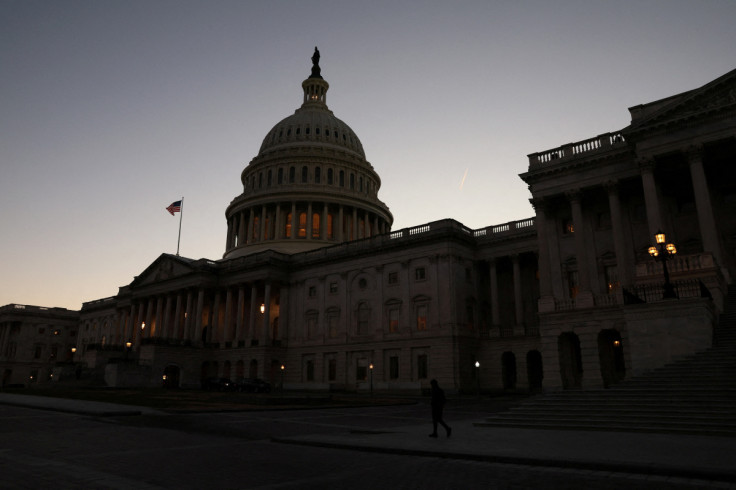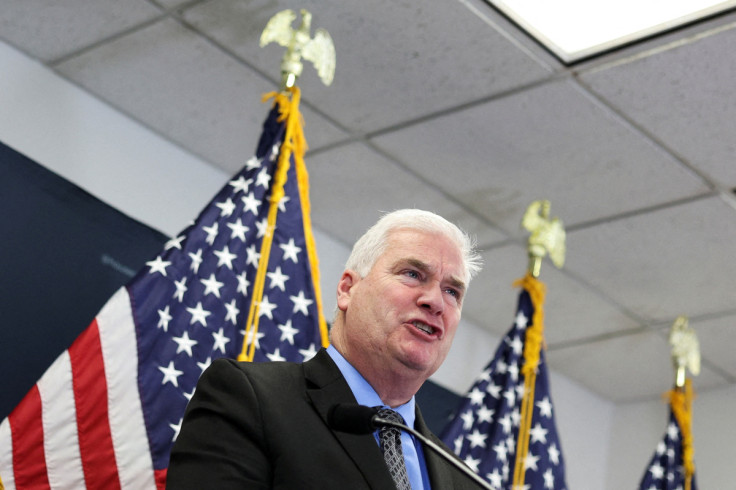Republicans Meet Again To Discuss Candidate For Speaker Of The House

Republican representatives will gather early evening on Monday in a closed-doors meeting to hear the latest candidates for Speaker of the House. It's a new round of discussions after the two previous GOP nominees failed to get enough support.
House Conference Chair Elise Stefanik (R-N.Y.), said Sunday on X that nine representatives are running for the post.
Today at noon was the deadline for announced candidates for Speaker.
— Elise Stefanik (@EliseStefanik) October 22, 2023
Official Announced Candidates to the House Republican Conference include:
Jack Bergman (MI)
Byron Donalds (FL)
Tom Emmer (MN)
Kevin Hern (OK)
Mike Johnson (LA)
Dan Meuser (PA)
Gary Palmer (AL)
Austin Scott…
After the Monday meeting, the conference will begin voting at 9 a.m. EST Tuesday in a secret ballot. If it produces a nominee, there could be a floor vote as soon as Tuesday.
Rep. Jim Jordan (R-Ohio), a far-right Republican and an ally of former President Donald Trump, dropped out of the race Friday after having his name rejected by the floor three times.
Before him, Steve Scalise (R-La.) withdrew his candidacy even before facing the full House vote.
Consensus Challenge
The main challenge has been getting all Republicans united behind one name. The nominee needs at least 217 votes to be elected speaker of the House. That means a candidate can't afford to lose more than four votes of the 221 GOP representatives, assuming that no Democrats would vote for the Republican nominee.

GOP Majority Whip Tom Emmer (R-Minn.) appears to be one of the leading new candidates. He is the third in Republican leadership in the House and was endorsed by former Speaker Kevin McCarthy (R-Calif.).
The House has been without a permanent speaker since Oct. 3, when McCarthy was ousted. Far-right members of the GOP were angry at him for passing a bipartisan bill that temporarily averted a government shutdown. Since then, Rep. Patrick McHenry (R-N.C.) is the interim speaker.
In January, it took five days and 15 votes on the floor for McCarthy to be confirmed as speaker. A group of about 20 Republicans repeatedly voted against him until some of his demands were met.
Legislative Paralysis
Without a speaker, legislative action in the House is paralyzed. The election of a permanent speaker is needed for Congress to address urgent issues.
President Joe Biden asked last week for the approval of a $106 billion national security package that includes aid to Israel, Ukraine, as well as humanitarian aid to Gaza.
The new speaker also will have to discuss a solution to fund the government after Nov. 17, when the stopgap measure that avoided a shutdown is set to expire.
House Minority Leader Hakeem Jeffries (D-N.Y.) said Monday on X that his conference will seek bipartisan common ground, but will continue fighting "right-wing extremism."
It’s time for traditional Republicans to abandon extremism and embrace a bipartisan path forward.
— Hakeem Jeffries (@RepJeffries) October 23, 2023
© Copyright IBTimes 2024. All rights reserved.






















